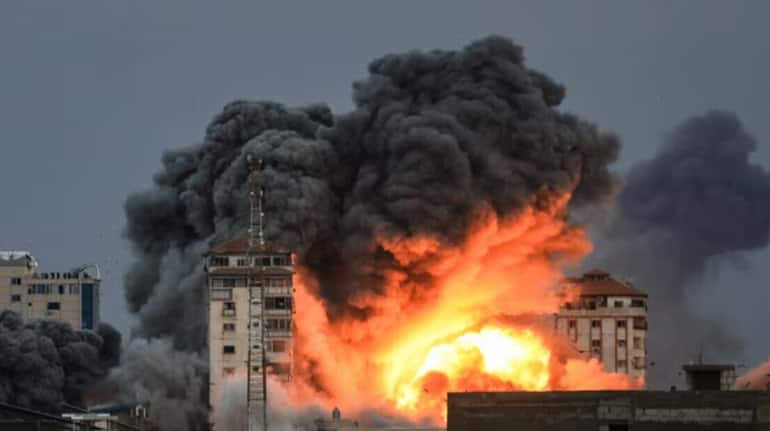On October 1, Iran launched a coordinated missile strike against Israel, marking a significant escalation in tensions between the two nations. This aggressive move has prompted Israel to adopt a more militaristic stance, focusing on both immediate threats and long-term security concerns. While the Israeli Defense Forces (IDF) are concentrating their efforts on neutralizing Hezbollah, their overarching fear is Iran’s potential development of nuclear weapons, which could dramatically alter the balance of power in the region.
Escalating Tensions between Iran and Israel
The conflict between Iran and Israel is not new, but the recent missile attack has intensified the situation. This section explores the historical context and the implications this escalation holds for the Middle East.
Historical Context of Iran-Israel Relations
The relationship between Iran and Israel has been fraught with hostility since the Iranian Revolution in 1979. The two nations have been engaged in a covert struggle for influence in the region, often manifested through proxy conflicts and diplomatic maneuvering. Iran’s support for groups like Hezbollah and Hamas has put it at direct odds with Israel, which views these organizations as existential threats.
The Role of Nuclear Weapons
One of Israel’s primary concerns is Iran’s advancing nuclear program. The Israeli government fears that if Iran successfully develops nuclear weapons, it could embolden the regime and lead to increased aggression towards Israel and its allies.
| Event | Date | Impact |
|---|---|---|
| Iranian Revolution | 1979 | Initiation of hostilities |
| Israel’s Airstrike on Iraq | 1981 | Prevention of nuclear threat |
| Joint Comprehensive Plan of Action (JCPOA) | 2015 | Agreed limits on Iran’s nuclear program |
| US Withdrawal from JCPOA | 2018 | Increased tensions |
| Recent Missile Strike | October 1, 2023 | Escalation of military aggression |
Israel’s Military Response
In response to the missile strikes, Israel’s military has ramped up its operations not only against Hezbollah but also against Iranian interests across the region. This section discusses the strategies and tactics employed by Israel in its military campaigns.
Targeting Hezbollah
Israel has prioritized dismantling Hezbollah’s military capabilities, which are seen as a direct threat to its northern borders. The IDF has conducted airstrikes against weapon depots and command centers linked to the group, asserting that a weakened Hezbollah will improve Israel’s security landscape.
Broader Regional Implications
The escalation between Iran and Israel does not only affect the two nations but has broader implications for regional stability. As tensions rise, allies and adversaries alike are forced to reevaluate their positions and strategies.
Conclusion
The recent missile strikes by Iran against Israel mark a critical juncture in their ongoing rivalry. With Israel focusing on neutralizing threats from Hezbollah while grappling with fears of a nuclear-armed Iran, the situation is fraught with potential for further conflict. As these developments unfold, the international community watches closely, aware that the consequences of this confrontation could reverberate far beyond the Middle East.
